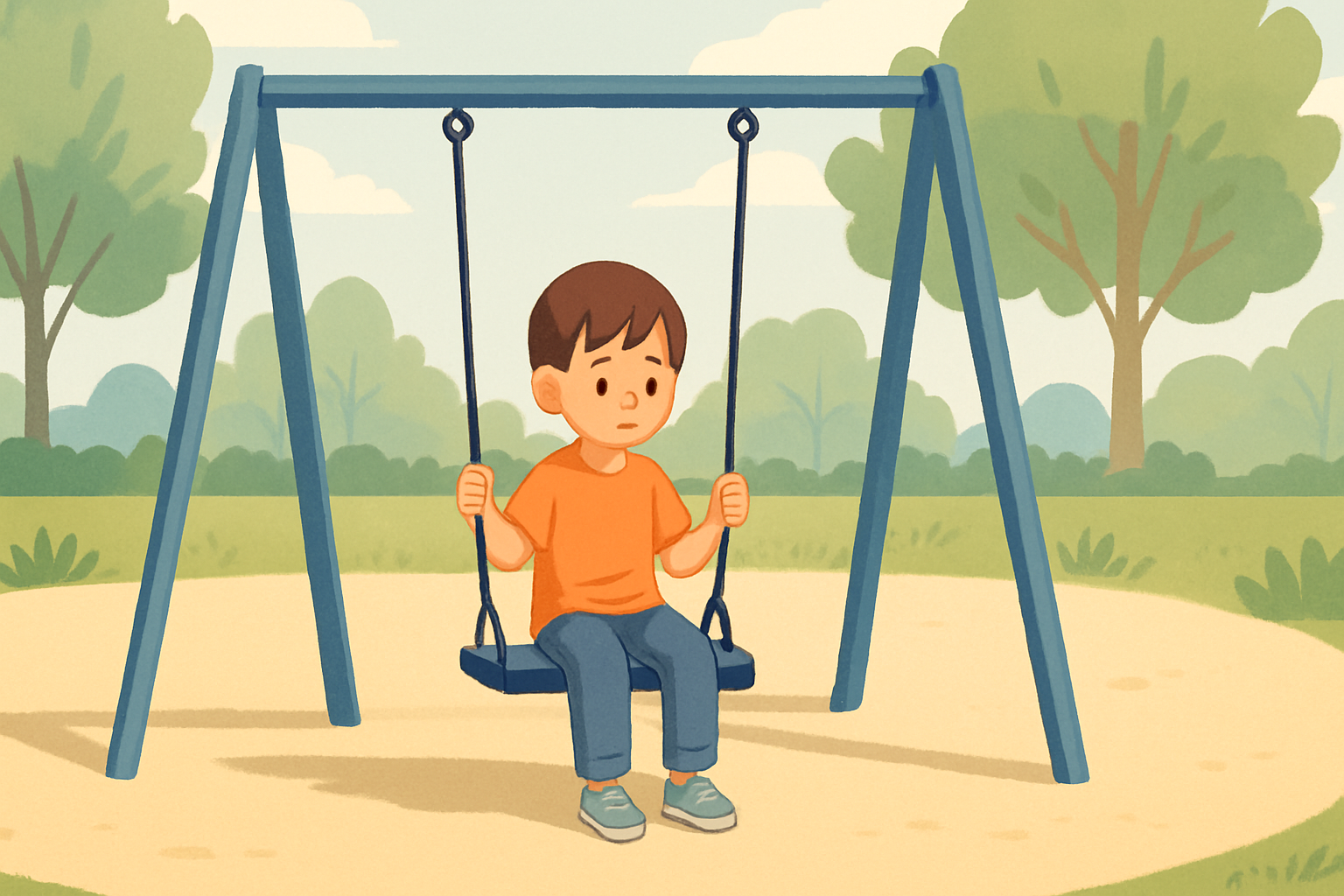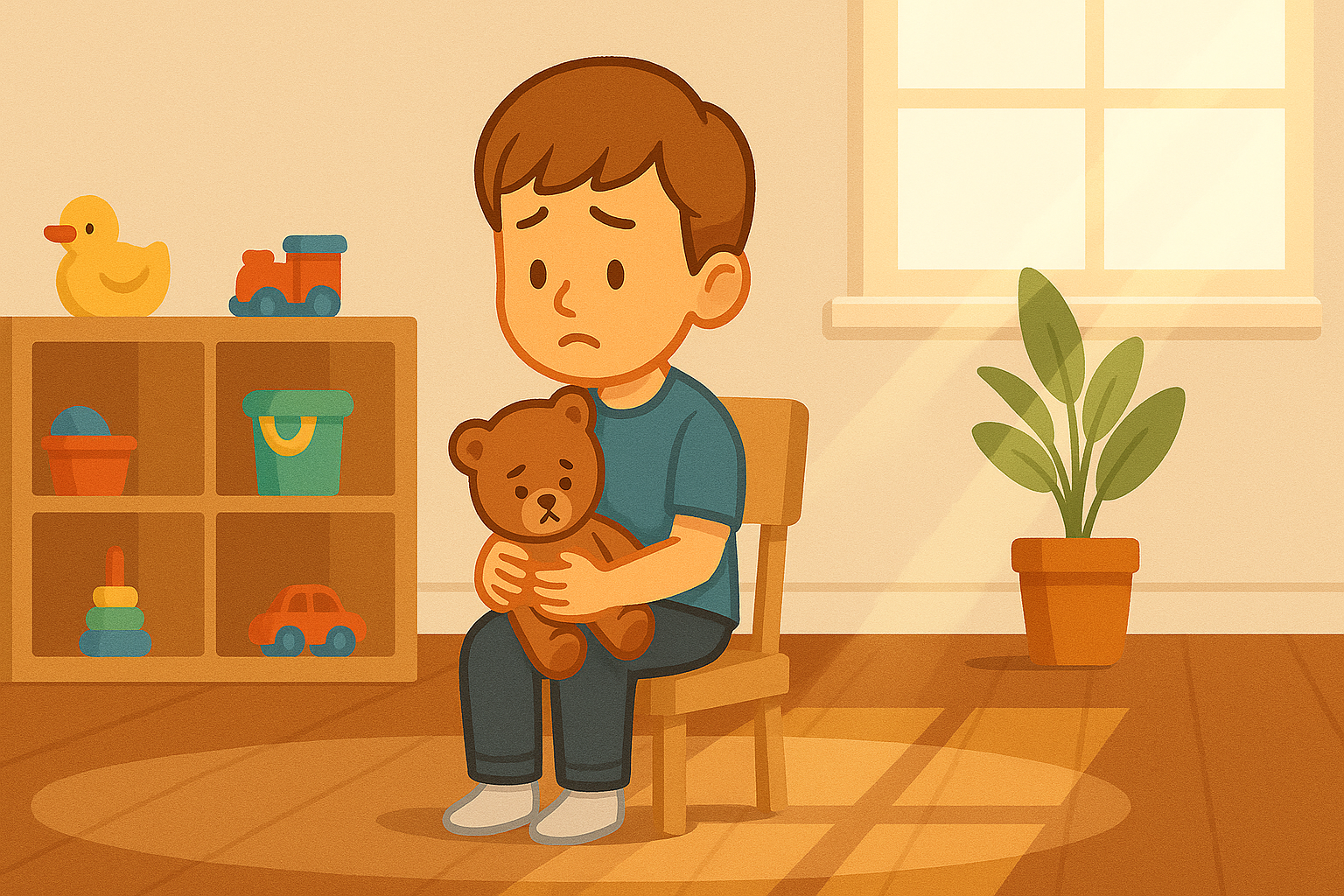
signs your child may need behavioural therapy in liverpool
18 June, 2025
 Key Highlights
Key Highlights
-
Behavioural therapy aims to improve children's quality of life by addressing behaviours of concern through early intervention strategies.
-
A support team, including behaviour support practitioners and family members, plays a central role in positive behaviour support for young people in Liverpool.
-
Early identification and intervention for developmental delays ensure an effective behaviour support plan is tailored to children’s specific needs.
-
Emotional and social indicators, such as anxiety and withdrawal, often signal that a child may benefit from therapy.
Introduction
If you’re noticing changes in your child’s behaviour, seeking child behavioural therapy in Liverpool could make a significant difference. Behavioural therapy benefits the mental health of young people, addressing their emotions and behaviours. Children struggling with behaviour, social skills, or intense feelings can receive support from skilled experts. Early intervention leads to better daily well-being. Read on for signs that your child may benefit from behavioural therapy.
Understanding Child Behavioural Therapy
Behavioural therapy is a way to help meet the needs of children who face problems, especially those with developmental delays, autism, or ADHD. The therapy uses positive behaviour support to make changes to behaviours of concern. The goal is to help the child have a better quality of life.
Support practitioners, such as social workers and behaviour support practitioners, work closely with families. They make Positive Behaviour Support Plans that are just right for every child, utilising data collection to ensure effectiveness. Early intervention is key in this work, and there is always a focus on a caring and understanding way to help with each child's needs.
Speak to our Liverpool-based behavioural therapy team today—NDIS-funded support available.
Importance of Early Intervention
Addressing behavioural concerns in early childhood is crucial for emotional and social development. Early intervention with a solid support plan, including counselling, simplifies learning and reduces developmental delays. A Functional Behaviour Assessment is typically the first step in creating an effective support plan tailored to your child’s needs.
Identifying emotional struggles allows practitioners to implement effective strategies that foster new skills, boost confidence, and enhance quality of life. Consistent practices at home or in early education create a nurturing environment. Delaying assistance can exacerbate challenges; recognising and acting on your child's needs promptly can significantly impact their progress, benefiting both the child and empowering families.
If you're unsure where to start, our article on specialised behaviour therapy for children in Liverpool explains how tailored support plans are developed and implemented under the NDIS.
Common Behavioural Indicators in Children
 Parents and caregivers should recognise common behavioural signs in children, such as aggression, withdrawal, or difficulty managing emotions. These concerns may indicate deeper developmental or mental health issues. Collaborating with behaviour support practitioners can provide insight and help create tailored support plans for each child. Early intervention is crucial, improving quality of life and fostering positive behaviours over time.
Parents and caregivers should recognise common behavioural signs in children, such as aggression, withdrawal, or difficulty managing emotions. These concerns may indicate deeper developmental or mental health issues. Collaborating with behaviour support practitioners can provide insight and help create tailored support plans for each child. Early intervention is crucial, improving quality of life and fostering positive behaviours over time.
Aggressive or Disruptive Behaviour Patterns
Noticing aggressive or disruptive behaviour in children can show that there may be deeper issues that need care. These kinds of behaviour, like refusing to listen or sudden angry actions, can point to something like autism or ADHD. A good behaviour support plan, made by people who know what they are doing, can help children show more positive behaviour. These support plans use the right ways to help and start early to make a difference. When we look at these behaviours with compassion and understanding, we can make the child’s quality of life better. This also helps them have better times with their family and the people around them, like those in community services.
Struggles With Following Rules or Instructions
Children with behavioural challenges often struggle to follow instructions due to unmet needs, impacting their education and home relationships. A well-crafted behaviour support plan utilises clear communication to set expectations. Practitioners can employ visual aids or simple routines for guidance. Collaboration between parents, educators, and the NDIS plan enables customised approaches for each child, minimising refusal and confusion while boosting motivation and task completion. A cohesive support plan fosters independence and self-confidence over time.
For a step-by-step guide on what’s involved in building an effective support plan, read our article on how behaviour support plans are made and what Liverpool parents should know.
Emotional Indicators in Children
 Children often show their feelings before they can say what is wrong. Signs like worry, sadness, and fear can let you know that they may be having mental health struggles. These struggles can get in the way of their quality of life.
Children often show their feelings before they can say what is wrong. Signs like worry, sadness, and fear can let you know that they may be having mental health struggles. These struggles can get in the way of their quality of life.
Compassion in counseling is very helpful for these problems. When teams use a kind and caring way with children, they help them learn more about how they feel. This guides them to notice what is going on inside and make sense of it. Let’s talk about two common things children may face and how therapy can give support for these challenges.
Persistent Anxiety or Excessive Worry in Kids
Excessive fear or worry that disrupts daily life may indicate clinical anxiety or PTSD. Signs include reluctance to try new things and frequent physical complaints, like headaches, stemming from internalised stress. Cognitive Behavioural Therapy (CBT) helps children identify anxieties and develop coping strategies, including gradual exposure therapy.
Frequent Mood Swings or Emotional Outbursts
Mood swings or disproportionate emotional reactions may suggest underlying ADHD and the need for Dialectical Behaviour Therapy (DBT). These issues can strain relationships with family and friends. Professionals assist young people in identifying emotional triggers, utilising mindfulness techniques in DBT to improve self-awareness and regulation. A supportive team provides stability; calming exercises and effective communication strategies can significantly enhance outcomes. Developing these skills empowers young individuals to replace harmful reactions with healthier choices as they mature.
Social Signs to Watch For
When a child has trouble with friends or does not want to be around others, it can say a lot about how the child feels as a whole. Sometimes, this is a sign that there might be things like autism or anxiety going on.
It is good to have a support team to help, which should have social workers, family members, and community services. When these people work together, they give the child more chances to get help. By giving care that fits each child, kids can get better at talking with others and feel better about themselves. Now, let’s talk about two main social problems and see how therapy helps with them.
Difficulty Making or Maintaining Friendships
Difficulty forming long-term friendships may signal deeper issues like autism or social anxiety. Parents might observe their child avoiding groups or struggling with conversations, hindering emotional growth. Practitioners customise their approaches to each child's needs, promoting understanding and teamwork in informal settings. Techniques such as positive role-play can help build trust and enhance social skills. Encouraging discussions about shared interests creates a safe space for connection. With effort and support, your child can thrive socially and maintain lasting friendships.
Withdrawal from Family or Social Activities
When children begin distancing themselves from family and social activities, it's crucial to give them extra attention. Signs may include: declining invitations, excessive solo time (like playing video games), and avoiding conversations with family. Support practitioners assist kids in re-engaging and feeling comfortable in these situations. Through a support plan, children can rediscover enjoyable activities and replace negative habits with positive ones. With help, they regain comfort with family and build confidence to connect with new friends.
When and How to Seek Professional Help in Liverpool
Liverpool offers a host of professional support tailored for young people through NDIS-approved services. Knowing when to seek help often depends on recognising repeated behaviours of concern or emotional challenges that affect quality of everyday life.
Through the NDIS, families can access NDIS behavioural support in Liverpool tailored to your child’s needs.
|
Signs to Watch For |
When to Seek Therapy |
|---|---|
|
Aggression or disruptive conduct |
If patterns persist for several months and escalate in intensity |
|
Emotional distress (worry, anxiety) |
When it impacts school or social activities for a prolonged period |
|
Social withdrawal |
If isolation prevents engagement with family or friends even in relaxed settings |
Our team supports children across Liverpool, Prestons, and Casula through clinic-based and in-home therapy. Before starting therapy, it helps to understand when to seek professional guidance—our guide on finding the right behaviour support practitioner in Liverpool explains what to look for.
Conclusion
Knowing the signs that show your child may need behavioural therapy is very important for their well-being. If you notice changes in their emotions, how they get along with others, or the way they act, it can help you take action early. Early intervention can make a big difference in your child’s growth. It helps them learn better ways to handle stress or problems.
Noticing challenging behaviours at home or school? Our team provides NDIS-funded behavioural therapy to children in Liverpool, Casula, Prestons, and surrounding areas — with flexible support options available in-clinic, online, or at home.
Book your consultation now to take the first step toward personalised support.
Frequently Asked Questions
What is child behavioural therapy in Liverpool and who is it for?
Child behavioural therapy in Liverpool is designed to support children who are experiencing emotional, social, or behavioural challenges at home, in school, or in the community. It helps children build positive coping strategies, improve communication, and manage difficult behaviours. At DAAR, we tailor therapy to suit each child’s developmental needs and family goals.
Can I access NDIS behavioural support in Liverpool for my child?
Yes, families in Liverpool may be eligible for NDIS behavioural support services. This includes behaviour assessments, personalised behaviour support plans, and therapy delivered in clinics, homes, or schools. DAAR is a registered NDIS provider offering behavioural therapy to help your child reach their goals with the right support network.
Why is early intervention for children in Liverpool important?
Early intervention for children in Liverpool can make a lasting difference in how children learn, behave, and connect with others. The earlier a child receives support, the more likely they are to develop skills that lead to better outcomes at school and home. Our team at DAAR provides early intervention strategies through evidence-based behavioural therapies under the NDIS.
.svg)

















